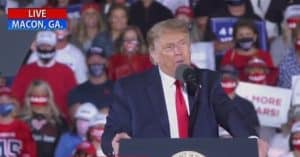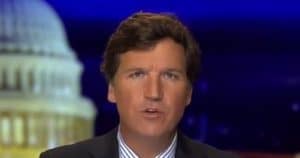USAID layoffs prompt legal challenge amid Constitutional debate
Amid massive workforce reductions at the United States Agency for International Development (USAID), current and former staff are grappling with the dramatic changes and their implications for global aid.
President Trump, with backing from Elon Musk's Department of Government Efficiency (DOGE), instigated major workforce cuts at USAID, citing corruption as the driving force, and prompting a constitutional lawsuit against government officials.
The agency, long known for its extensive involvement in international aid, has faced a sweeping overhaul due to claims of inefficient and corrupt practices. On Friday, USAID's emblematic headquarters saw the removal of its nameplates as over 8,000 employees and contractors were furloughed or put on indefinite leave. By Thursday evening, the number of staff slated to remain had increased to 611 from an initially planned 297.
Severance Leaves Agency With Sparse Staff
In a jarring virtual meeting earlier in the week, employees witnessed their peers being logged out as their job roles were cut. “It was like from a horror film,” a USAID staffer recounted. Under these new directives, the repatriation of overseas employees is set to take place within 30 days.
Musk's DOGE effort centers on a mission to curtail government expenditures, placing USAID in its crosshairs. Elon Musk has been a vocal critic of foreign aid, arguing that taxpayer money should be directed toward domestic needs or not collected at all.
Contentious Departure Raises Legal Concerns
Friday's events coincided with the start of a lawsuit by two unions against President Trump and other officials. The lawsuit challenges the move as infringing on congressional authority, maintaining that only Congress possesses the power to dissolve USAID. Robin Thurston, legal director at Democracy Forward, explicitly referred to the actions as an unconstitutional takeover.
Despite the pushback, both President Trump and Secretary of State Marco Rubio have defended the decision, arguing for a necessary realignment of aid priorities. “USAID is driving the radical left crazy,” Trump commented on Truth Social, asserting that the longstanding fraudulent expenditures necessitated the current actions.
Rubio also voiced support for the cuts, yet admitted a preference for a different course of action. Ensuring that foreign aid remains aligned with U.S. interests remains a priority. “The United States will be providing foreign aid," Rubio maintained, "but it is going to be foreign aid that makes sense.”
Global Implications And Budgetary Impact
USAID’s interventions have traditionally spanned diverse areas including food aid, health services, and disaster relief, engaging more than 100 countries with an annual budget of $40 billion. The ongoing changes, however, signal likely disruptions to current and future programs.
The reductions are poised to affect American businesses that supply goods and services for USAID initiatives as well. With 800 awards and contracts listed for cancellation, ripple effects on related industries are anticipated.
Staff remaining concentrated efforts on health and humanitarian sectors yet highlight concerns over functionality with reduced personnel. “290 people won't be able to do anything,” one employee lamented. The holistic restructuring of such a vast agency presents imminent logistical and operational challenges.
Restructuring Sparks Bipartisan Debate
The unprecedented scale of this restructuring has fueled a divisive political climate, drawing sharp lines between differing opinions on the necessity and legality of the layoffs. Advocates view the overhaul as a rectification of inefficiency, while detractors criticize the approach and consequences.
Among the intense public discourse, a quoted USAID staffer shared stark dismay at the proceedings, confiding, “There is no bottom to this stupidity.” The sheer magnitude and abrupt nature of the developments continue to provoke dialogue at various governmental levels.
The coming weeks are set to provide further clarity on the lawsuit's progression and the tangible impacts of the USAID changes. Meanwhile, the discourse on government efficiency and fiscal responsibility proceeds amid complex domestic and international contexts.
As the scenario evolves, the broader implications for international aid strategies and U.S. foreign policy will undoubtedly shape ongoing conversations in the public and political spheres.




